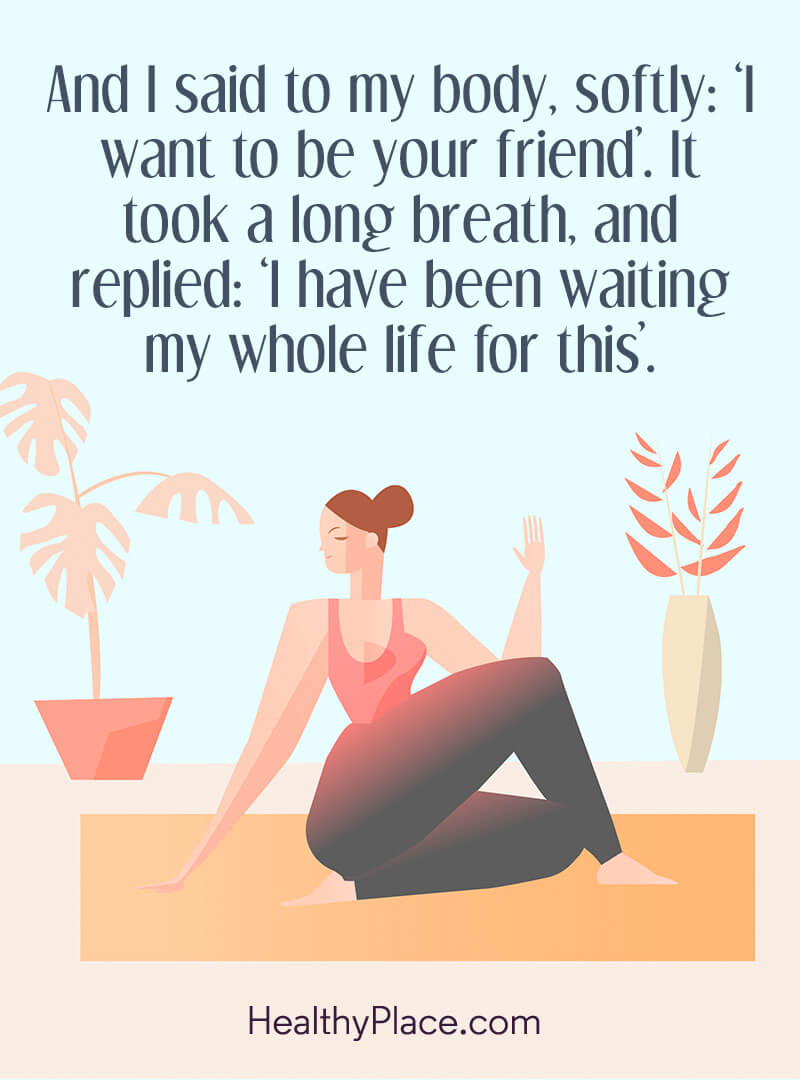I'm continuing to read A New Earth and The Power of Now, and I have to say that these books have had a profound impact on how I perceive the whole "eating disorder recovery" process. Because of this, I'm going to be posting a little series of reflections on the principles of The Power of Now and how they relate to the healing journey.
(I'm going to pause really quickly here so that the words "healing journey" can sit with you for a moment. Rather than thinking of eating disorder recovery as loss of identity/major change/etc., think of it as what it is: recovery from an illness. You're healing your body. You're not "losing your fitness" or anything, okay? Making this shift from victim to warrior is incredibly empowering. I mean, right now we have the opportunity to change our lives for the better! An eating disorder is not a choice, but recovery is. It's healing. We're healing. Yay!)
I rediscovered The Power of Now while staring in desperation at the titles in my mum's medicine pantry. Many of the books there were collected by her and by my grandmum over a period of decades. They're coffee-stained and have broken spines and smell like cinnamon, and they remind me of a childhood spent rescuing earthworms from flooded streets and listening to my mum and grandmum read aloud from the works of Beatrix Potter, Marianne Williamson, and C.S. Lewis.
When I saw the faded binding of The Power of Now, I remembered the audio book version that my grandmum used to play during long car trips, and upon opening the book's cover, I discovered the words "best heart" scrawled in my five year-old handwriting. My grandmum used to always tell me to love with my "best heart," and seeing those words again was like a wake-up call. My "best heart" would in no way approve of an eating disorder. And neither would my grandmum.

Between school assignments and work, I've only gotten about a quarter of the way through The Power of Now, but the sections that I've read are already full of underlining and annotations. The concept of the "pain-body" has been particularly meaningful for me because Tolle's description of the pain-body is so applicable to eating disorders. The pain-body seeks to perpetuate itself by feeding on the sadness, anxiety, and fear that it creates.
"The pain-body wants to survive, just like every other entity in existence, and it can only survive if it gets you to unconsciously identify with it. It can then rise up, take you over, 'become you,' and live through you."WOW. Reading this, all my disordered eating patterns started to make sense. When I start digging a hole for myself--relapsing, getting absorbed in fear, etc.--it's really hard to pull myself out of that hole. The pain-body "feed[s] on any experience that resonates with its own kind of energy," so the more anxious I become, the more power the pain-body gets. And then, because the pain-body convinces me that it's who I am, I just dig my hole deeper, not realizing that my eating disorder is trying to perpetuate itself. This all sounds pretty abstract and metaphysical, I know, but it's been incredibly eye-opening for me. I've finally started to take a step back and realize that my eating disorder is an illness. It's pain seeking pain, and I have the power to put an end to it.
"The pain-body . . . is actually afraid of the light of your consciousness."Next time, I'm going to write a bit about consciousness and awareness vs. unconsciousness and thinking. I hope that these posts will resonate with some of you, too, and I'm sending #kittyzen wishes.
<3 <3 <3


